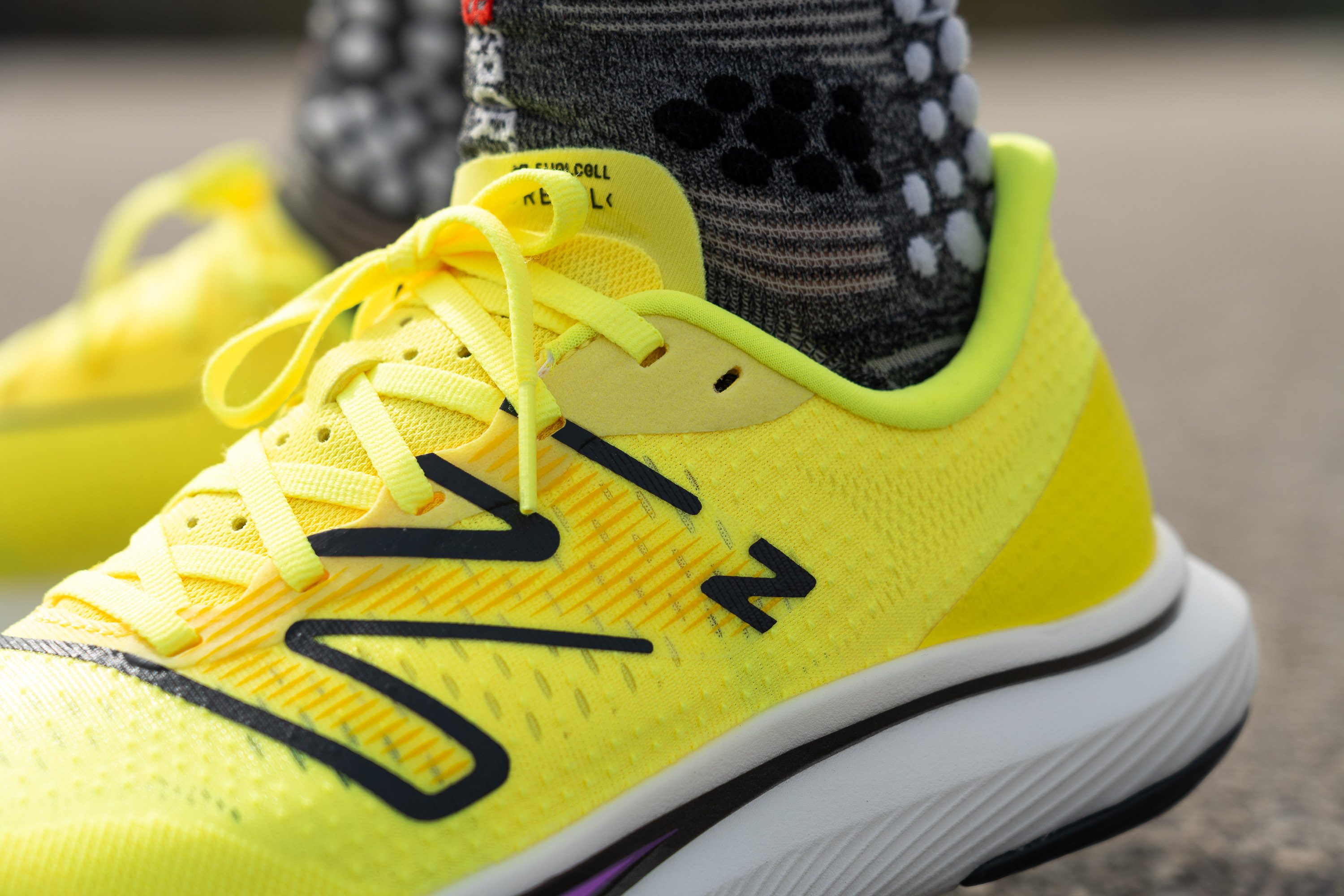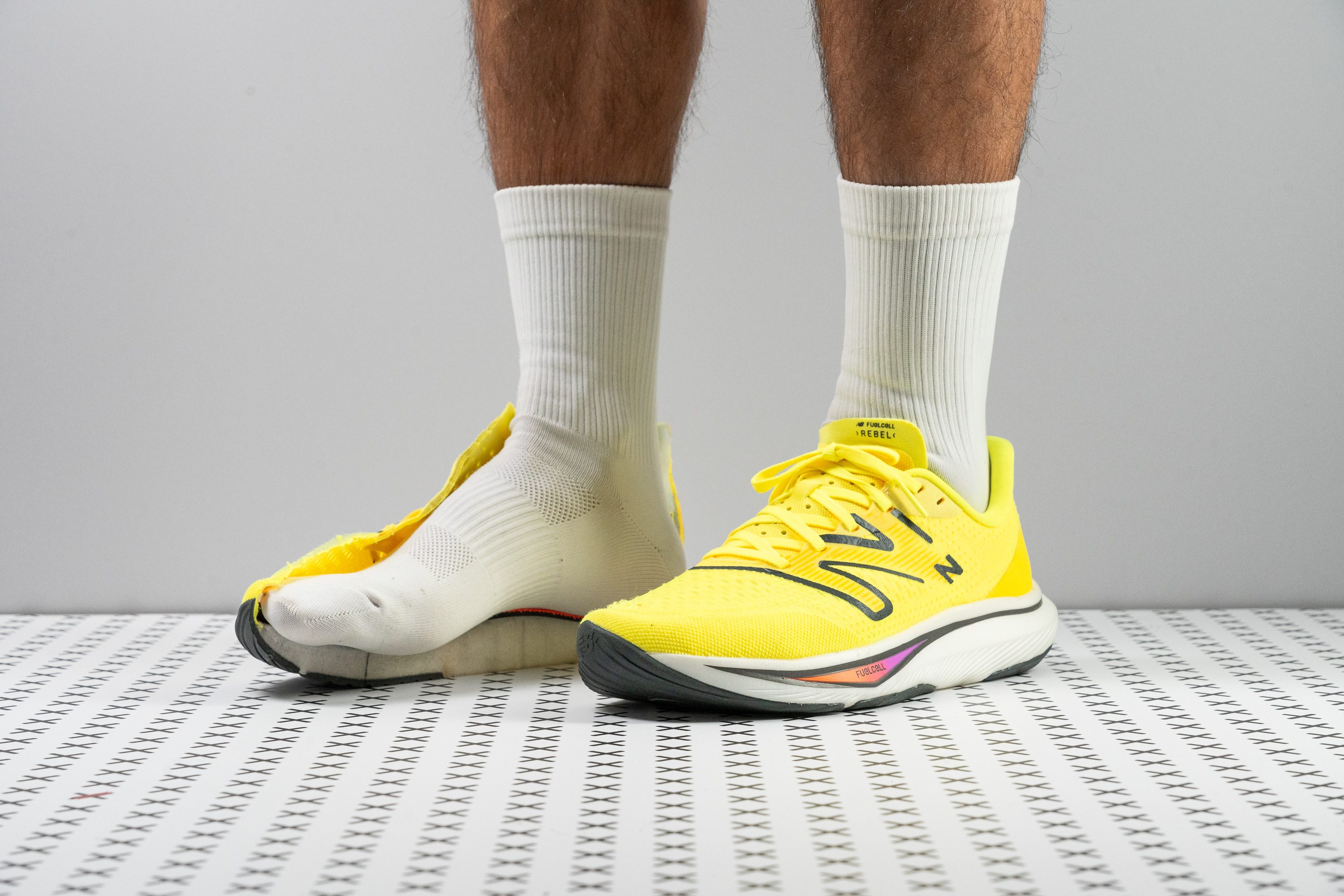Our verdict
Pros
- Fantastic soft and fun ride
- Versatile for different paces
- Very lightweight
- Excellent breathability
- More stable than version 2
- Great lockdown
- Visible at night
- Not expensive
Cons
- Not great on wet surfaces
- Durability could be improved
- Bottoms out easily
Audience verdict
- Top 24% in road running shoes
- Top 20% in New Balance running shoes
Comparison
The most similar running shoes compared
+ + Add a shoe | |||||
|---|---|---|---|---|---|
| Audience score | 89 Great! | 90 Superb! | 89 Great! | 87 Great! | |
| Price | £130 | £140 | £150 | £145 | |
| Pace | Tempo | Daily runningTempo | Tempo | Tempo | |
| Shock absorption | - | High | Moderate | Moderate | |
| Energy return | - | Moderate | Low | High | |
| Traction | - | High | Moderate | Moderate | |
| Arch support | Neutral | Neutral | Neutral | Neutral | |
| Weight lab Weight brand | 7.4 oz / 211g 7.4 oz / 211g | 7.8 oz / 220g 7.9 oz / 225g | 7 oz / 198g 7 oz / 199g | 6 oz / 171g 6 oz / 171g | |
| Lightweight | ✓ | ✓ | ✓ | ✓ | |
| Drop lab Drop brand | 9.0 mm 6.0 mm | 6.3 mm 6.0 mm | 9.0 mm 8.0 mm | 6.3 mm 6.0 mm | |
| Strike pattern | HeelMid/forefoot | Mid/forefoot | HeelMid/forefoot | Mid/forefoot | |
| Size | Half size small | True to size | True to size | True to size | |
| Midsole softness | Soft | Soft | Balanced | Soft | |
| Difference in midsole softness in cold | Big | Small | Small | Small | |
| Toebox durability | Decent | Bad | Good | - | |
| Heel padding durability | Bad | Good | Decent | - | |
| Outsole durability | - | Good | Good | - | |
| Breathability | Breathable | Moderate | Moderate | Breathable | |
| Width / fit | Narrow | Medium | Medium | Narrow | |
| Toebox width | Narrow | Medium | Medium | Medium | |
| Stiffness | Moderate | Moderate | Flexible | Flexible | |
| Torsional rigidity | Flexible | Flexible | Flexible | Flexible | |
| Heel counter stiffness | Moderate | Moderate | Moderate | Flexible | |
| Rocker | ✗ | ✓ | ✗ | ✓ | |
| Heel lab Heel brand | 31.7 mm 29.5 mm | 33.0 mm 35.0 mm | 28.7 mm 28.0 mm | 31.7 mm 32.0 mm | |
| Forefoot lab Forefoot brand | 22.7 mm 23.5 mm | 26.7 mm 29.0 mm | 19.7 mm 20.0 mm | 25.4 mm 26.0 mm | |
| Widths available | NormalWide | NormalWide | Normal | Normal | |
| Orthotic friendly | ✓ | ✓ | ✓ | ✓ | |
| Season | SummerAll seasons | All seasons | All seasons | SummerAll seasons | |
| Removable insole | ✓ | ✓ | ✓ | ✓ | |
| Ranking | #149 Top 22% | #36 Top 10% | #100 Top 27% | #155 Top 41% | |
| Popularity | #424 Bottom 37% | #32 Top 9% | #182 Top 48% | #220 Bottom 42% |
Size and fit
Size
New Balance FuelCell Rebel v3 fits half size small (88 votes).
Consider sizing up
Who should buy New Balance FuelCell Rebel v3
We recommend getting this shoe if you seek a super soft, lively ride, and want just one pair of shoes to go at almost all paces. It can be a good choice for race day too. Perfect for runners who prefer to train on short and middle distances.
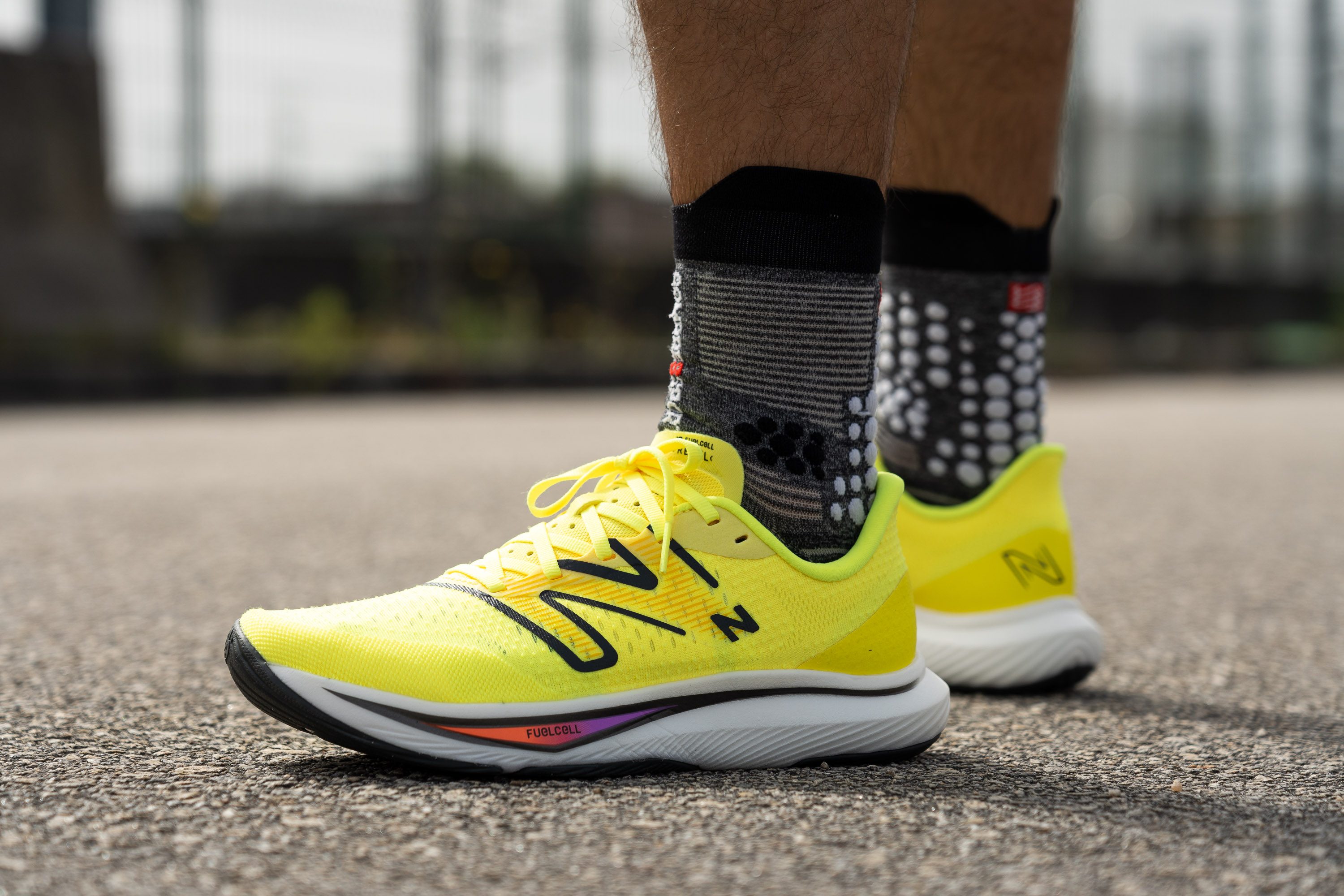
Who should not buy it
Don’t buy it if you:
- want grip in wet conditions. The Nike Pegasus 40 is much better for that
- tend to "bottom out" most shoes. The ASICS Superblast is a safer choice.
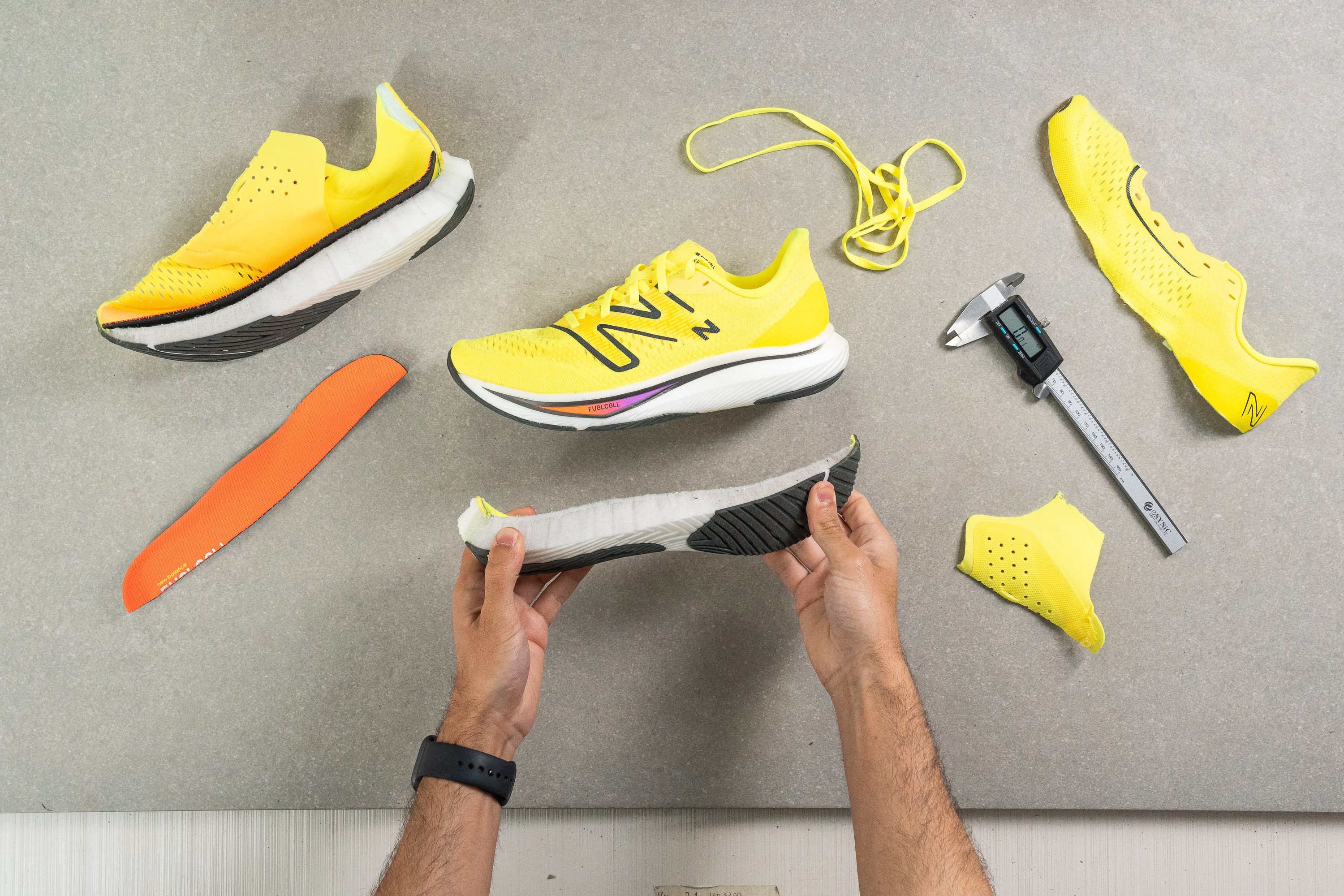
Great airflow in this New Balance shoe
The shoe remained exceptionally breathable on warm summer days.
The shoe's extremely thin knit upper provides a very breathable on-foot experience.
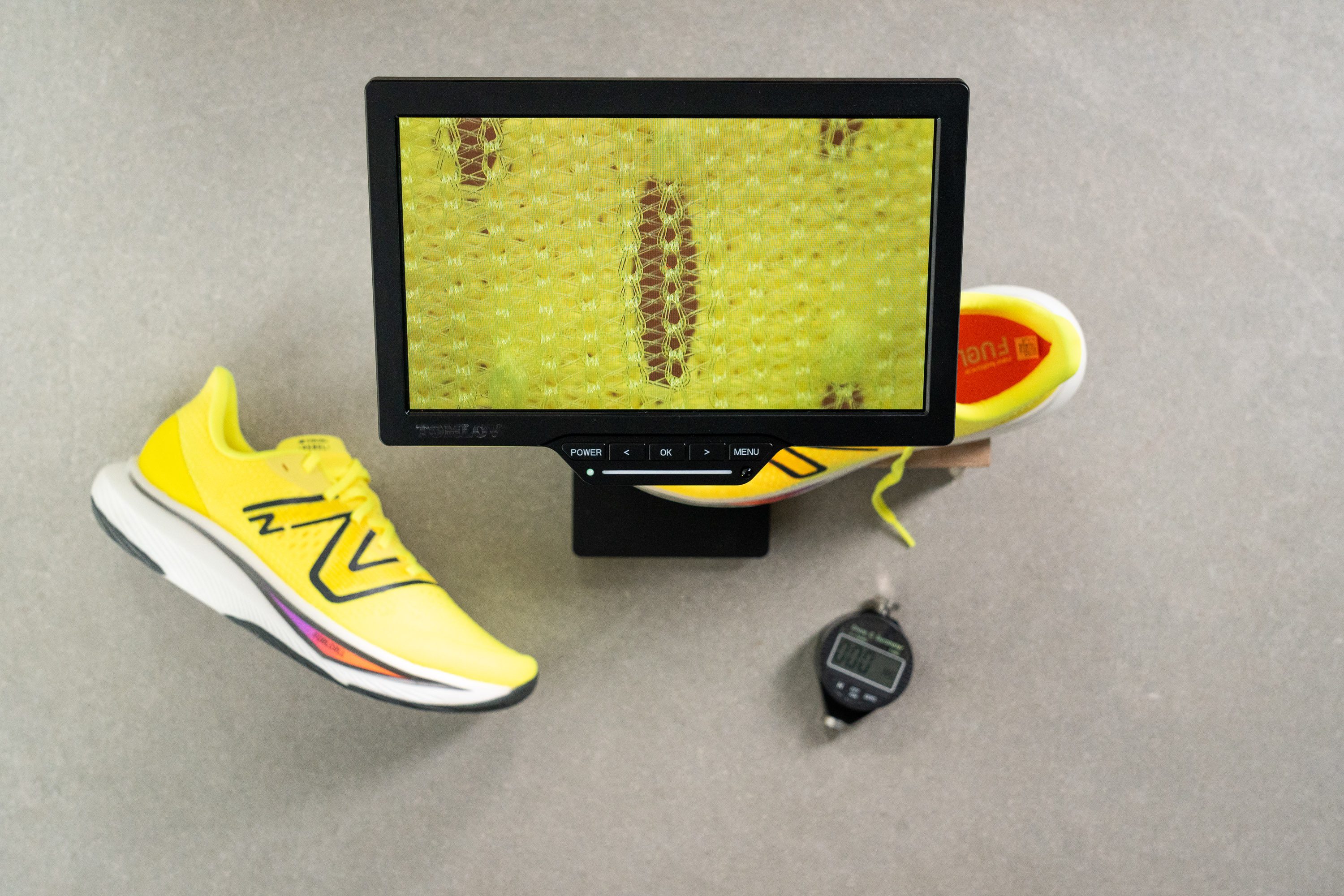
The Rebel earned a perfect score (5/5) on our breathability test. To be absolutely certain, we examined the upper under a microscope and discovered that New Balance went above and beyond to promote airflow and heat dissipation.
They ingeniously combined a layer of engineered knit with an ultra-thin layer of mesh for structure, without compromising the exceptional breathability in any way.

We must applaud NB for their clever design regarding breathability. As demonstrated in the video below, as the light moves toward the heel, less light passes through. This approach provides more structure where needed, without compromising breathability in the forefoot area.
Unfortunately, the trade-off for a soft and breathable upper is durability. This comes as no surprise since constructing a durable and breathable upper requires a rougher knit to resist friction, à la Nike Alphafly Next% 2.
New Balance chose to prioritise comfort, which is understandable as the Rebel is a training shoe, but you should know that this will affect the shoe's longevity.
As you can see, the damage from our standardised Dremel test is pretty evident, although not as scary as with other shoes.
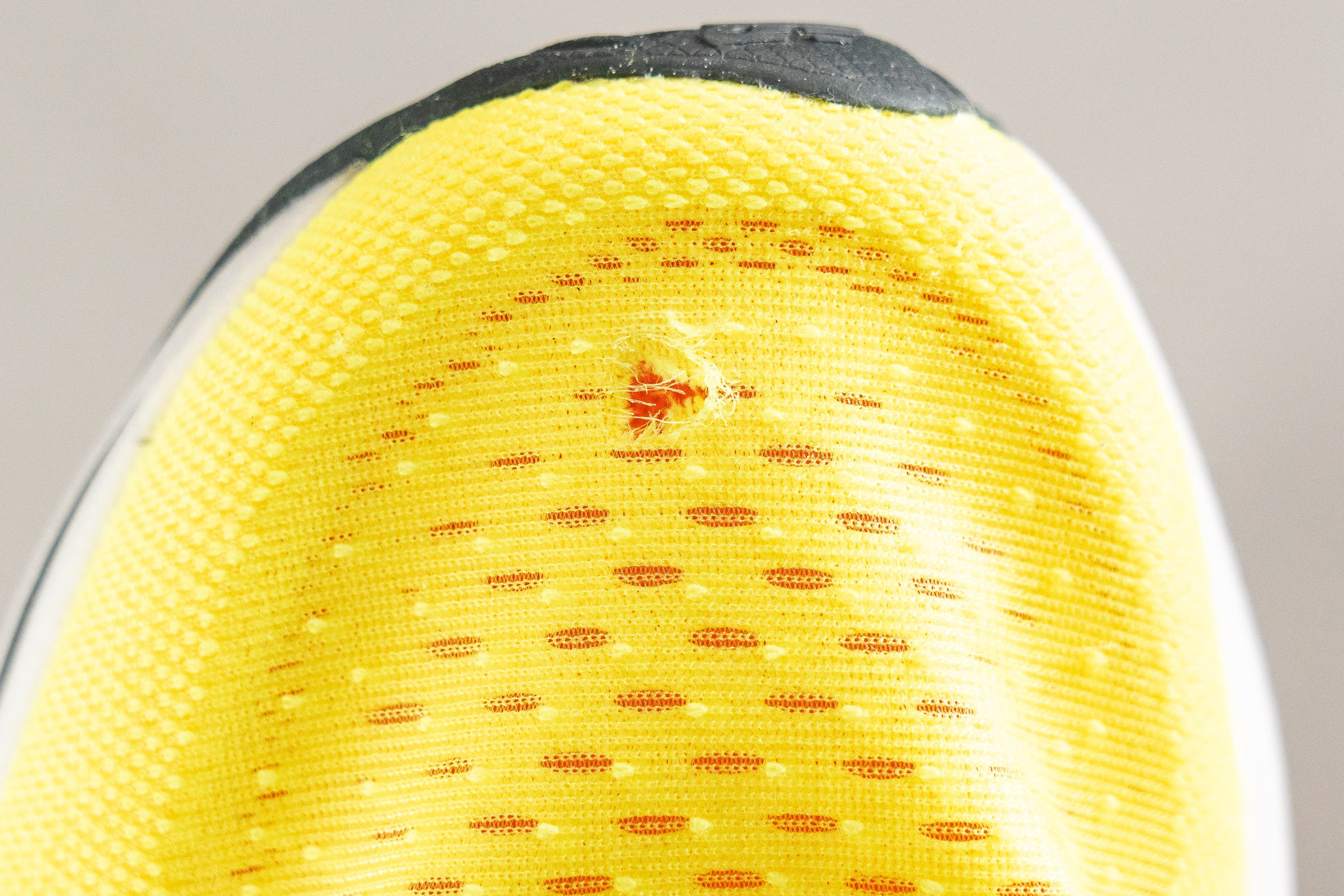
New Balance FuelCell Rebel v3 vs Rebel v2
It seems like the major improvements from the previous iteration are found in the shoe's platform, which is slightly wider to enhance stability.
There is also a refreshed upper design the outsole sees more rubber and more wear resistance.
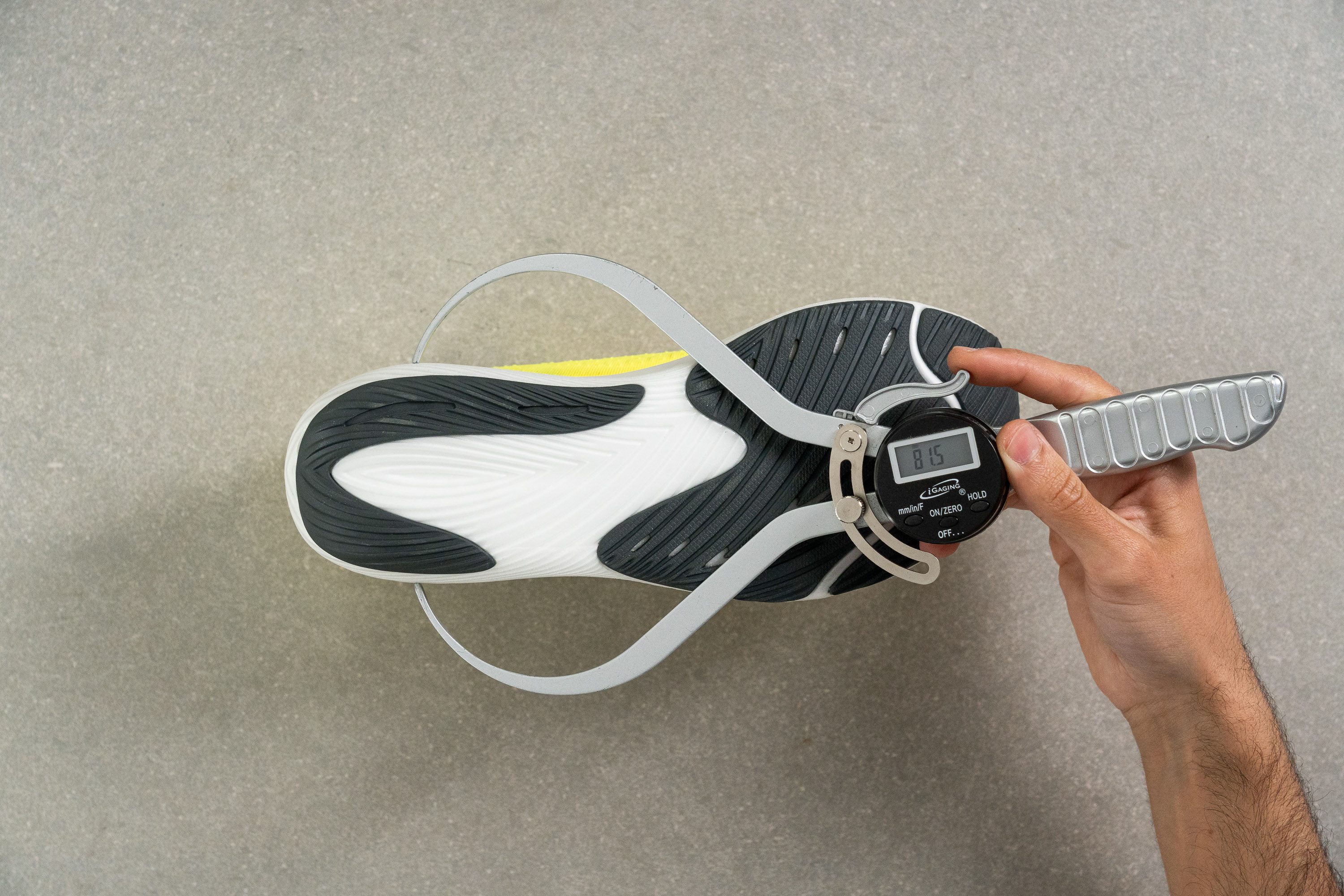
From our experience, the NB Rebel just keeps getting better and better with each update!
The midsole is THE reason to buy it
Probably the best part of the Rebel v3 is the FuelCell nitrogen-infused TPU midsole, which is superlative if you love soft-and-buttery foams. It feels rather spongy and responsive and offers a smooth, natural ride.

New Balance asserts that the heel-to-toe drop of the Rebel v3 is 6 mm. Unfortunately, we disagree. Our meticulous measurements disclosed a stack height of 31.7 mm in the heel and 22.7 mm in the forefoot, resulting in a 9 mm drop.
In other words, there's a 3-mm discrepancy between the brand's claims and the actual measurements!

The magic of this midsole lies in its softness. We found it to be incredibly soft, as our durometer measured it at just 9.5 HA. It is in the top 3% of the softest running shoes we've ever tested!
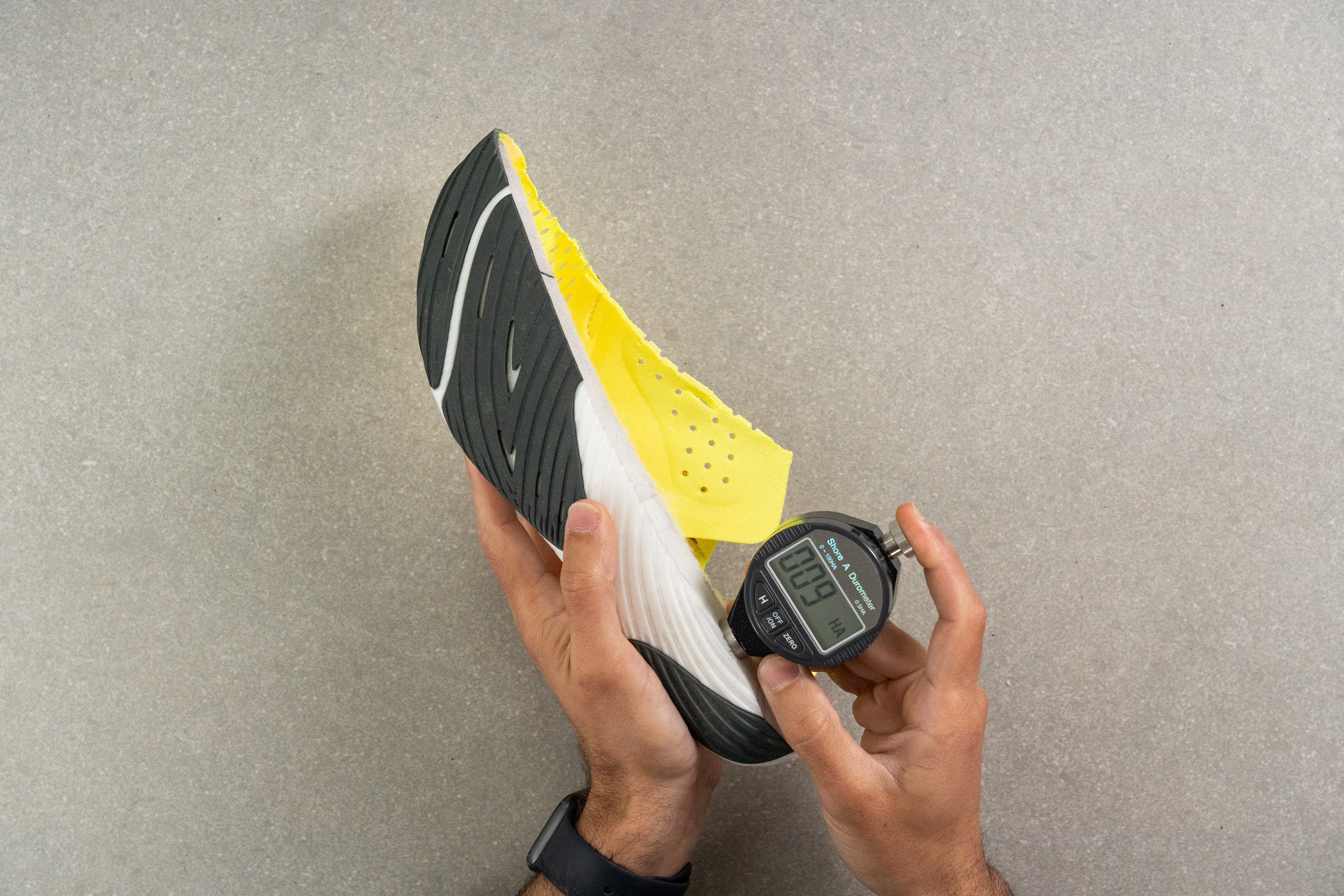
The downside of this fluffy midsole is the increased risk of bottoming out, particularly during summer as the foam gets really soft. If you're not a fan of that ground feel or you have stability issues, this shoe might not be the best choice for you.
Extraordinary flexibility
Flexibility is a polarising thing in running. While it's undeniable that a stiffer shoe with a plate can elevate performance, for training purposes it's really interesting to stick with a more natural and flexible shoe. And the Rebel is one of the best in this regard.
It's quite clear that this shoe is highly flexible. We rated it 1 out of 5 in both longitudinal and torsional flexibility tests during our manual assessment.
It required only 14.4 N of force to bend it to 90º, which is 56.8% less than the average shoe, making it the 6th most flexible shoe we have ever measured out of 200+ kicks!
If you want a stiffer and firmer ride with a similar stack height, take a look at the Adidas Adizero Adios 7.
Good lockdown in the Rebel v3
We particularly appreciated the lacing in this New Balance shoe because it worked very well. The wide flat laces help to achieve an excellent lockdown.
The same goes for the back of the shoe, where the heel lockdown is magnificent!
In terms of comfort, the tongue truly excels. It's semi-gusseted, not that much cushioned, and well-ventilated, providing the perfect combination for a tempo-focused shoe.
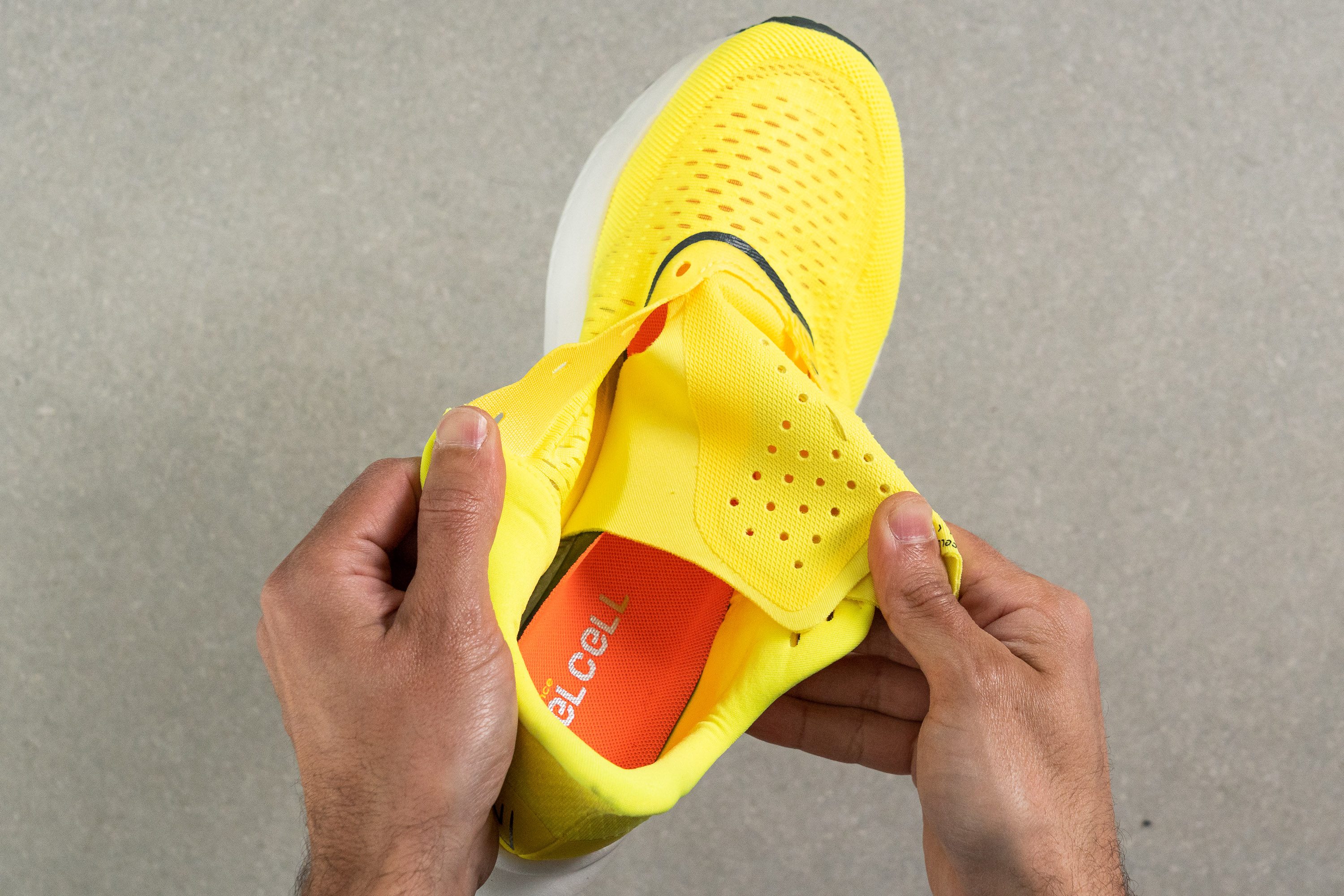
A major concern with the previous Rebel model was its paper-thin tongue. This issue has been resolved in the v3, as the tongue is now 81.2% thicker.
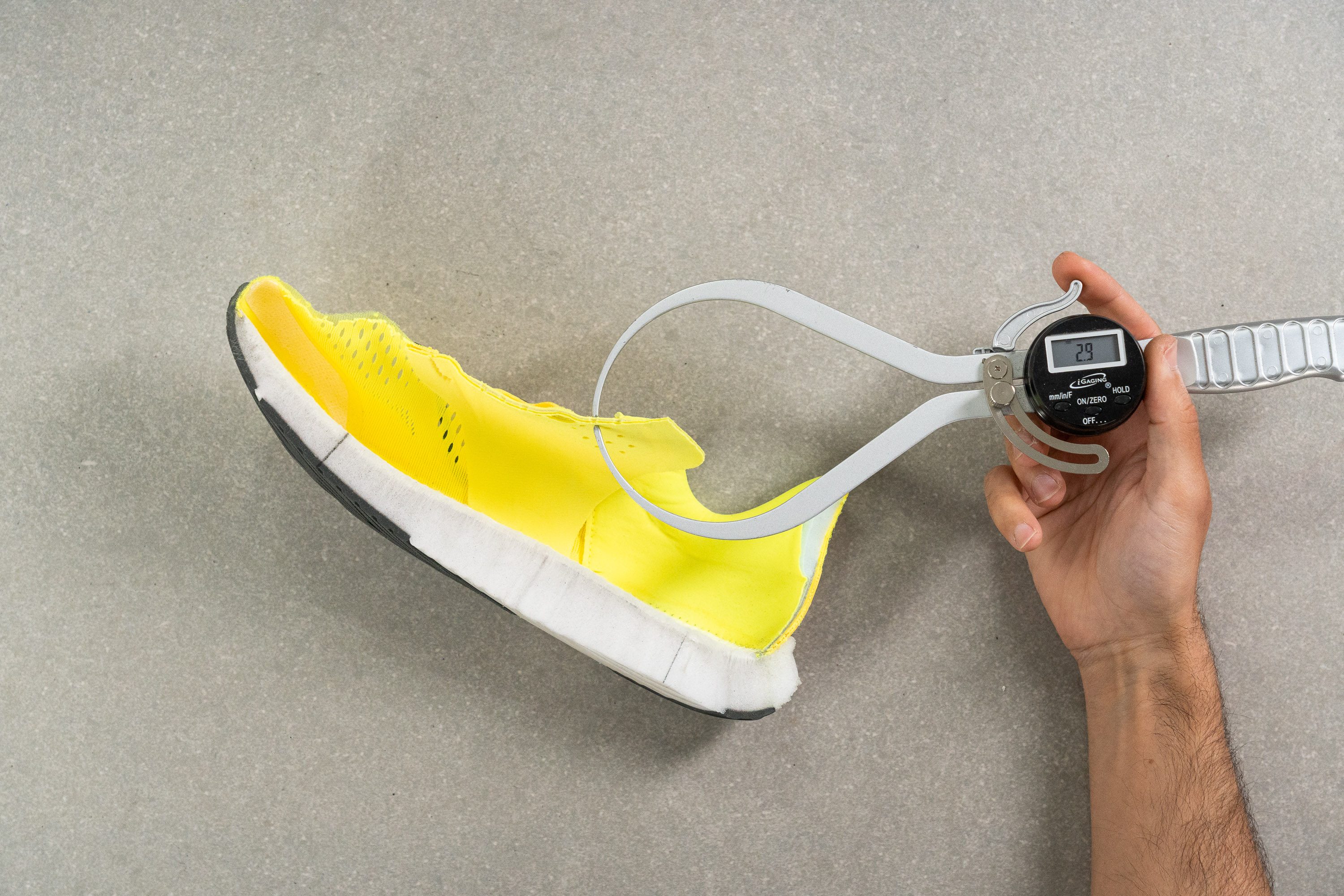
Snug-and-short but not overwhelmingly narrow fit
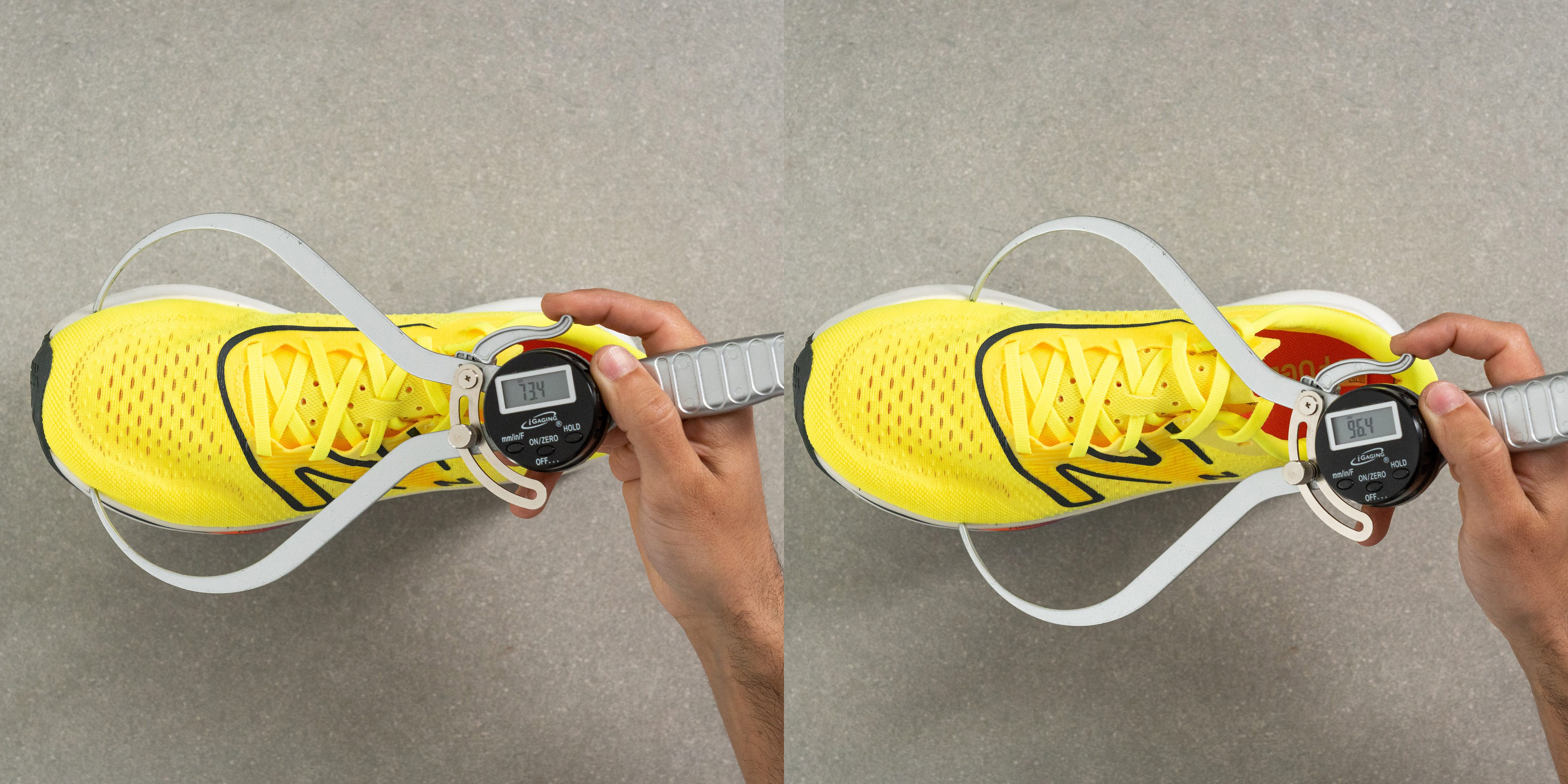
If you make a shoe that should work for everybody, you can't go crazy with the design. That's why New Balance went with a pretty standard upper in terms of fit for a tempo shoe. And how do we know that? Let's compare with some similar shoes:
| Shoe | Max width (mm) | Big toe measuring point (mm) | Tapers by |
| New Balance FuelCell Rebel v3 | 96.4 | 73.4 | 20.7% |
| Nike ZoomX Streakfly | 95.4 | 77.3 | 19% |
| Adidas Adizero Adios 7 | 99.1 | 67.6 | 31.6% |
| Nike Pegasus Turbo Next Nature | 95.4 | 74.9 | 21.4% |
| Saucony Kinvara 14 | 99.8 | 74.0 | 25.8% |
Embracing the Adizero design, the Adidas shoe is a little bit different, while the others remain fairly typical, resembling most tempo shoes on the shelves. Consequently, if you usually find comfort in most tempo training shoes, the Rebel v3 is a safe choice.
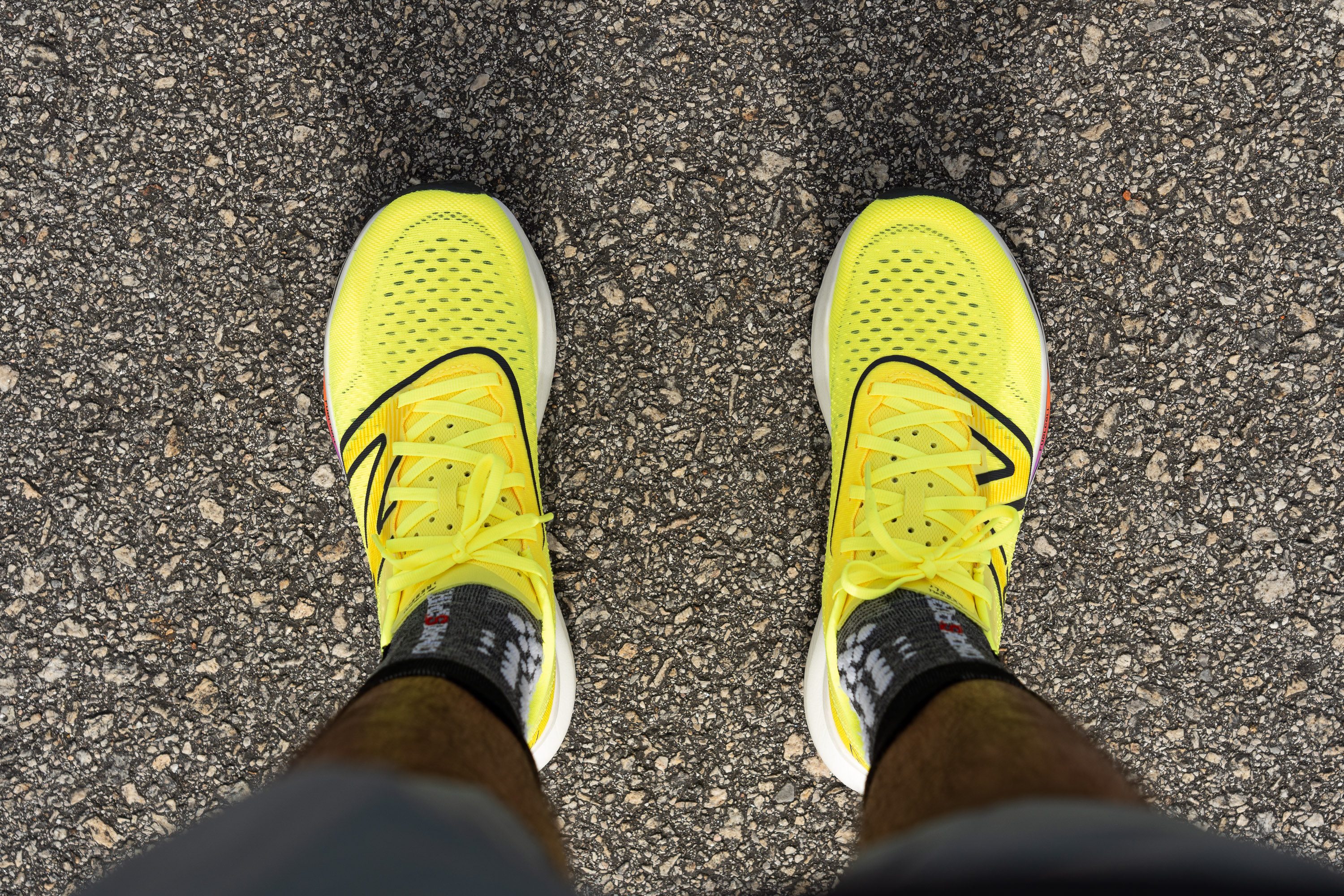
FuelCell Rebel v3 is a fast daily trainer
This New Balance is great for easy runs and it is also a great shoe to wear every day of the week. It can also pick up the pace and be ideal for steady, tempo workouts.
However, it is not ideal for long-distance runs.
Naturally, don't anticipate any rocker in this shoe And it shouldn't have one, either. It closely resembles a traditional racing flat.
Still work to do on the outsole
One aspect that disappoints in this shoe is the lack of traction in wet conditions, which is just acceptable and for sure is less effective than what we see in other similar shoes. That's because the outsole is quite flat and its lugs are not particularly protruding.
It's definitely not in the same ballpark as PumaGrip or Adidas Continental outsoles.
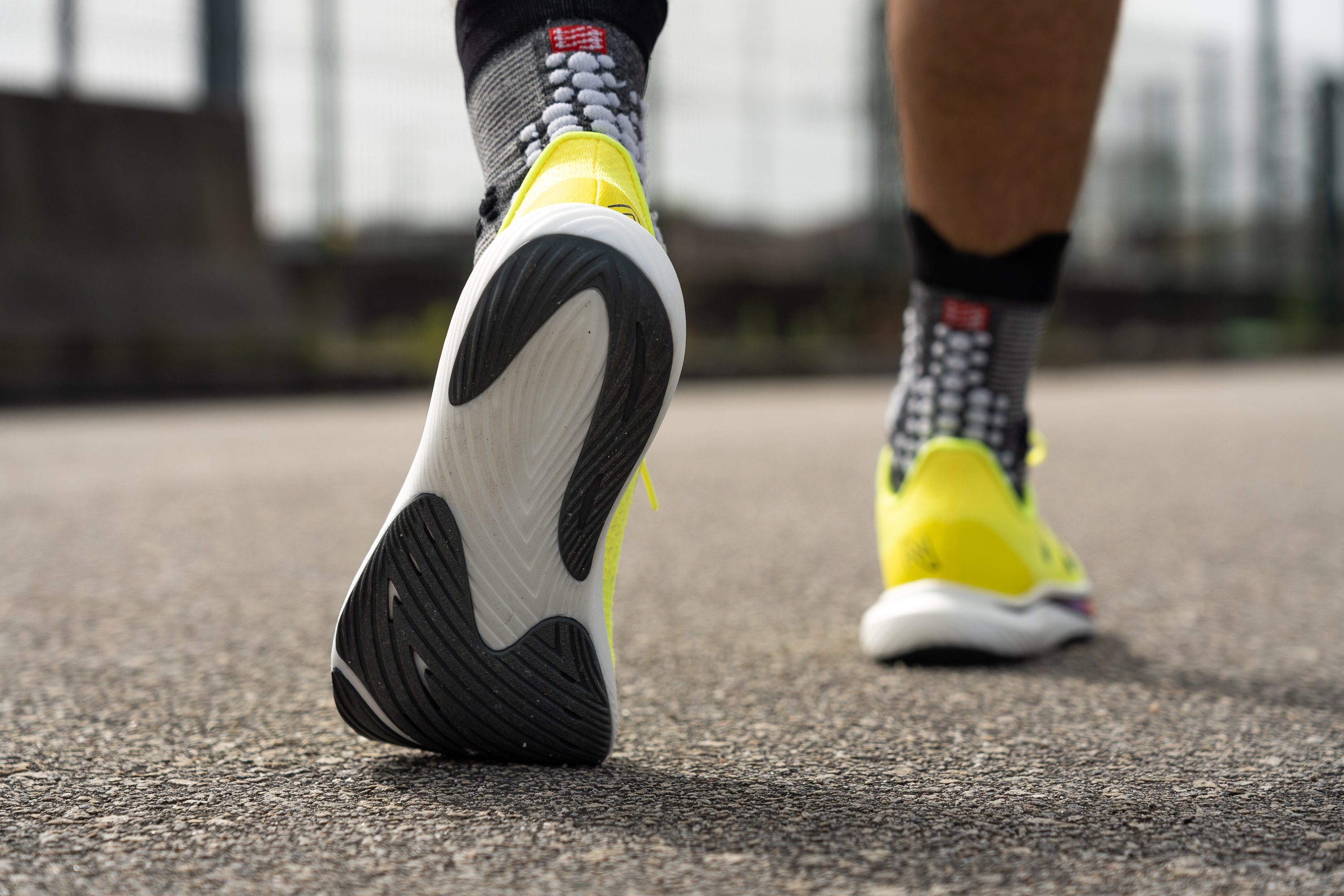
In the previous version of the Rebel, the outsole didn’t last long at all. This issue has been partly fixed in the Rebel v3 by adding more rubber.
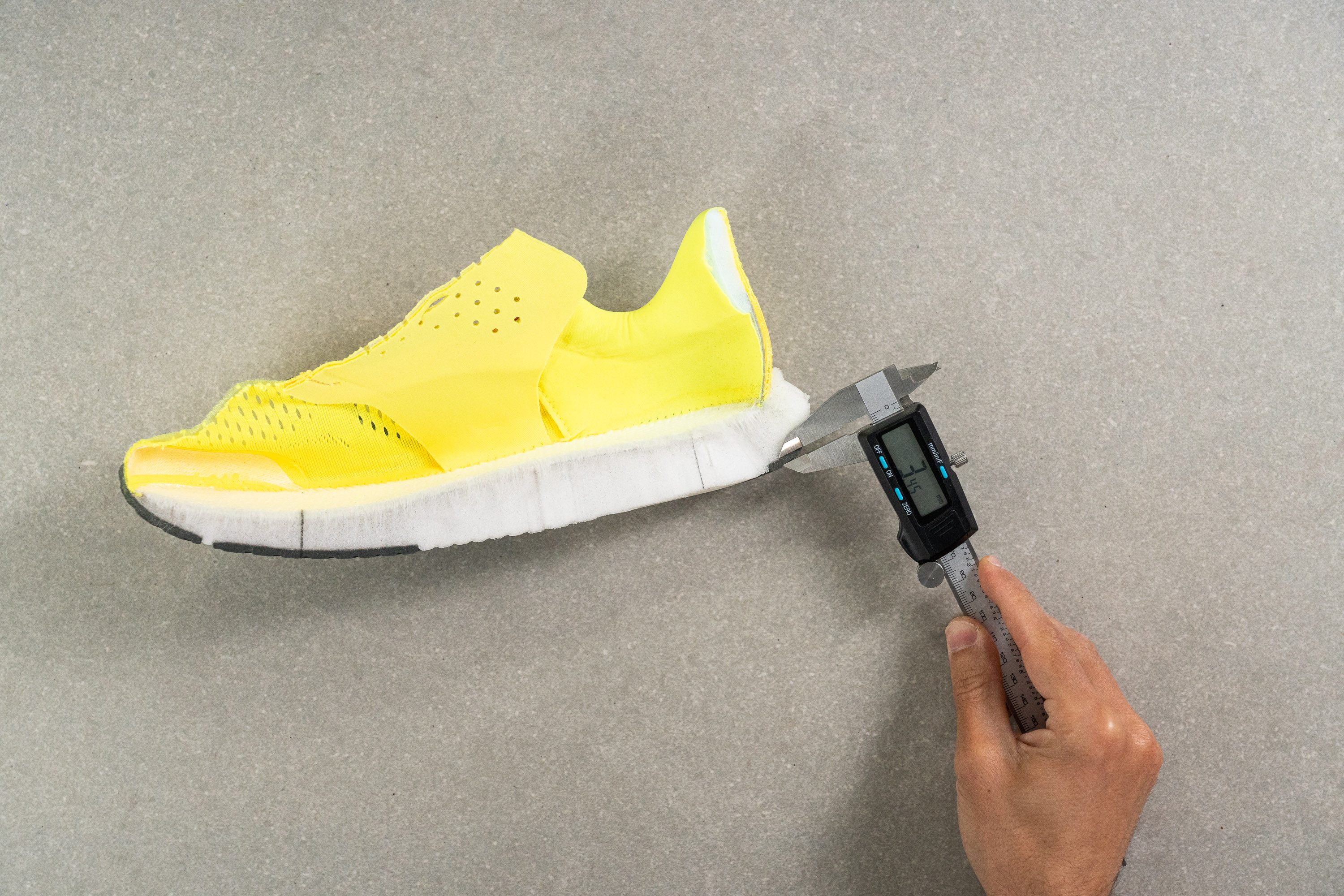
While it's true that there is less exposed foam in the v3, the rubber in the outsole is 12.5% thinner than v2.
Thus, we think that there’s still work to do on this part, as it remains a little below the average compared to other road running shoes.
Weight: 9/10
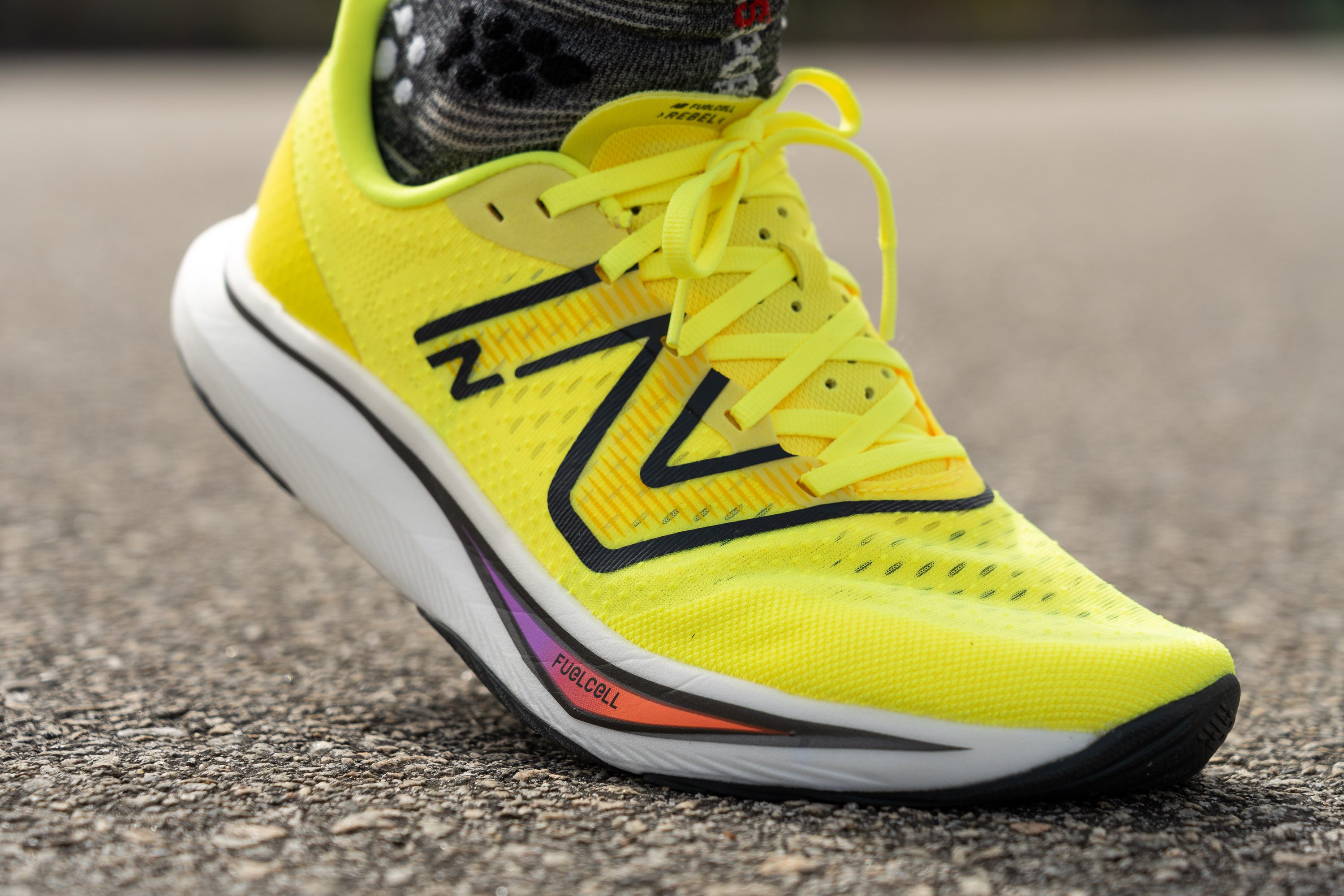
This new version weighs 7.4 oz (211g) in US size 9, so the Rebel v3 remains an extremely lightweight shoe compared to the average of road running shoes, which is 9.5 oz (270g).
New Balance Rebel v3 doesn’t cost you a fortune
The Rebel v3 is unique in price too, which is £130. It's very close to the average for a road running shoe (£130), but there are not many shoes on the market that deliver this much performance and responsiveness at such a moderate price point.
